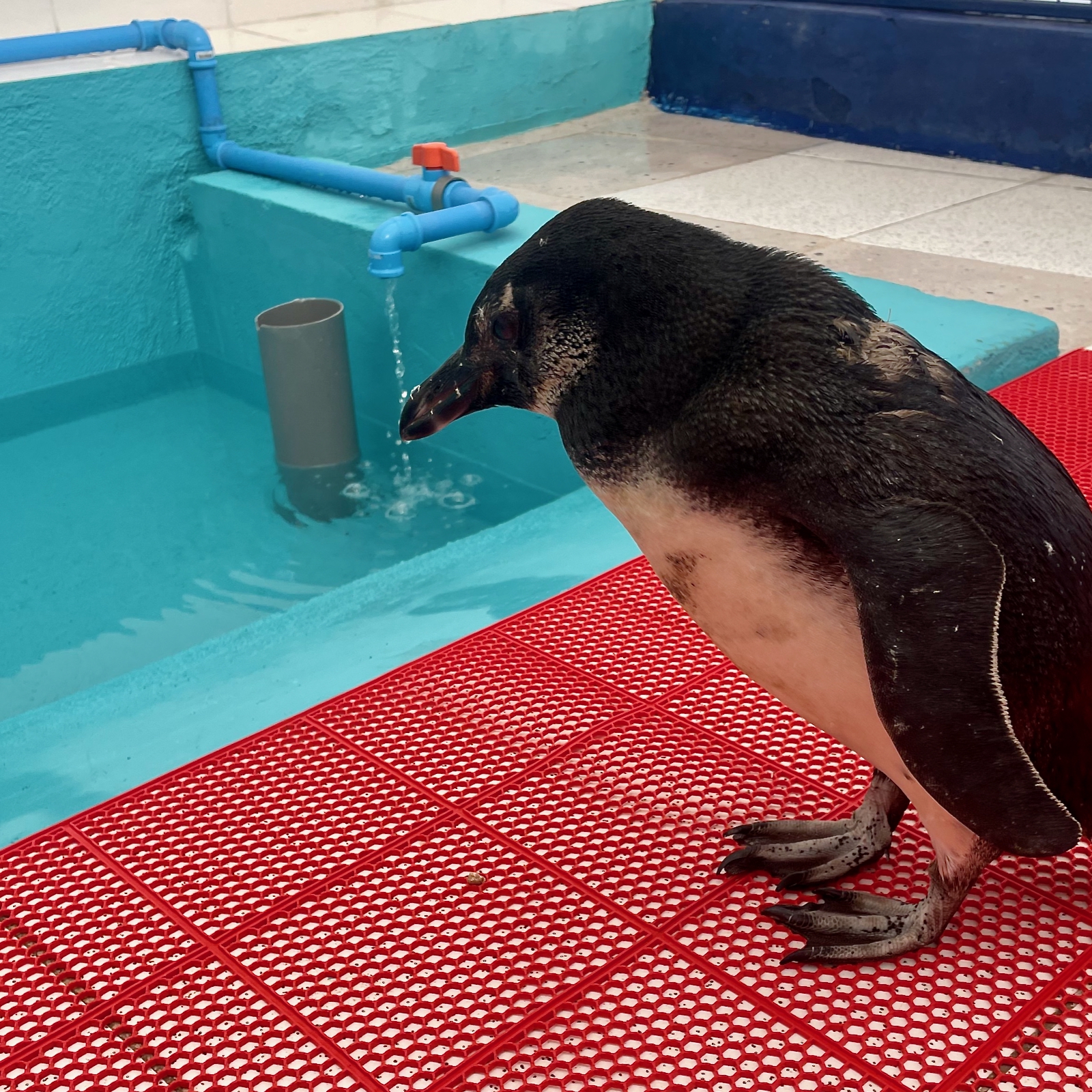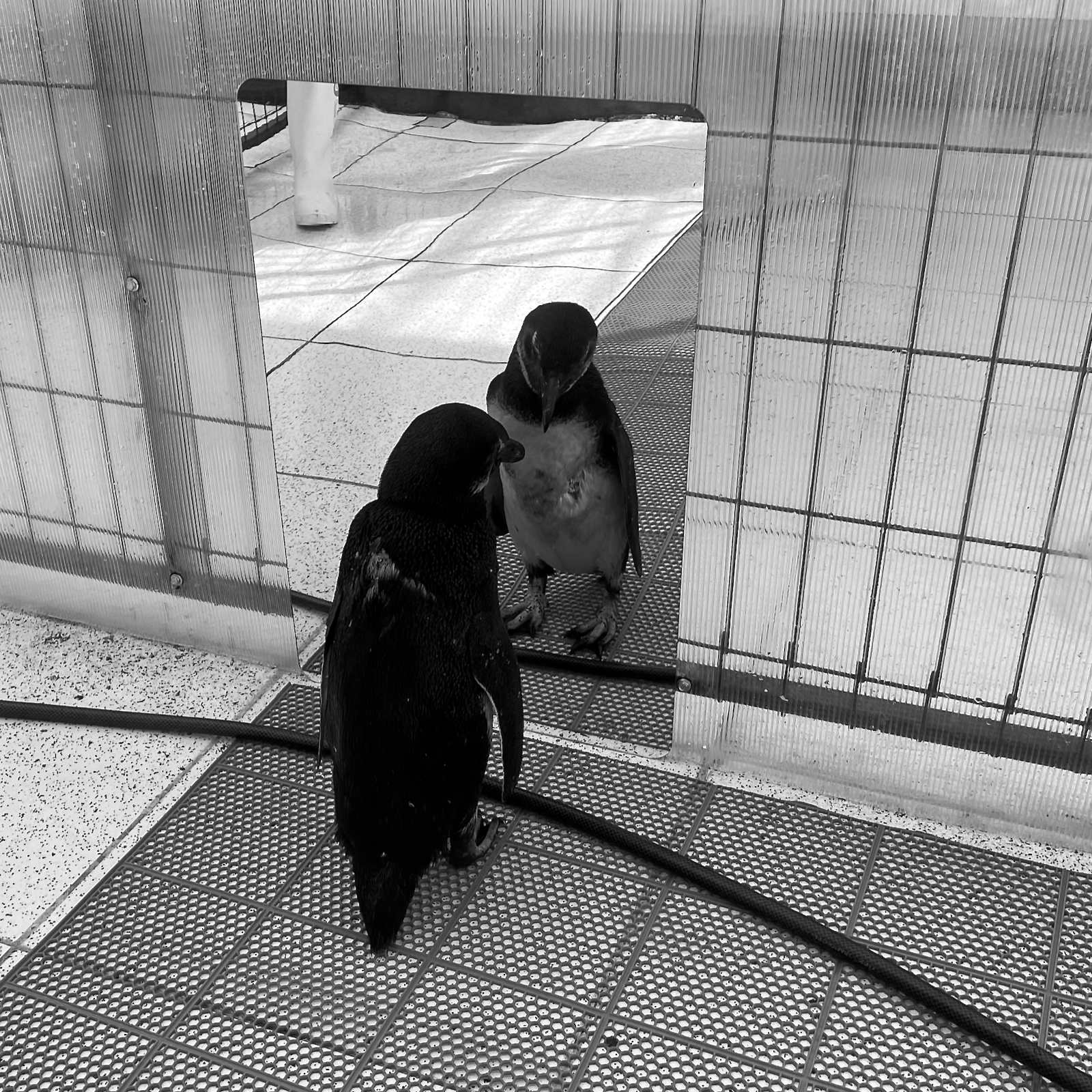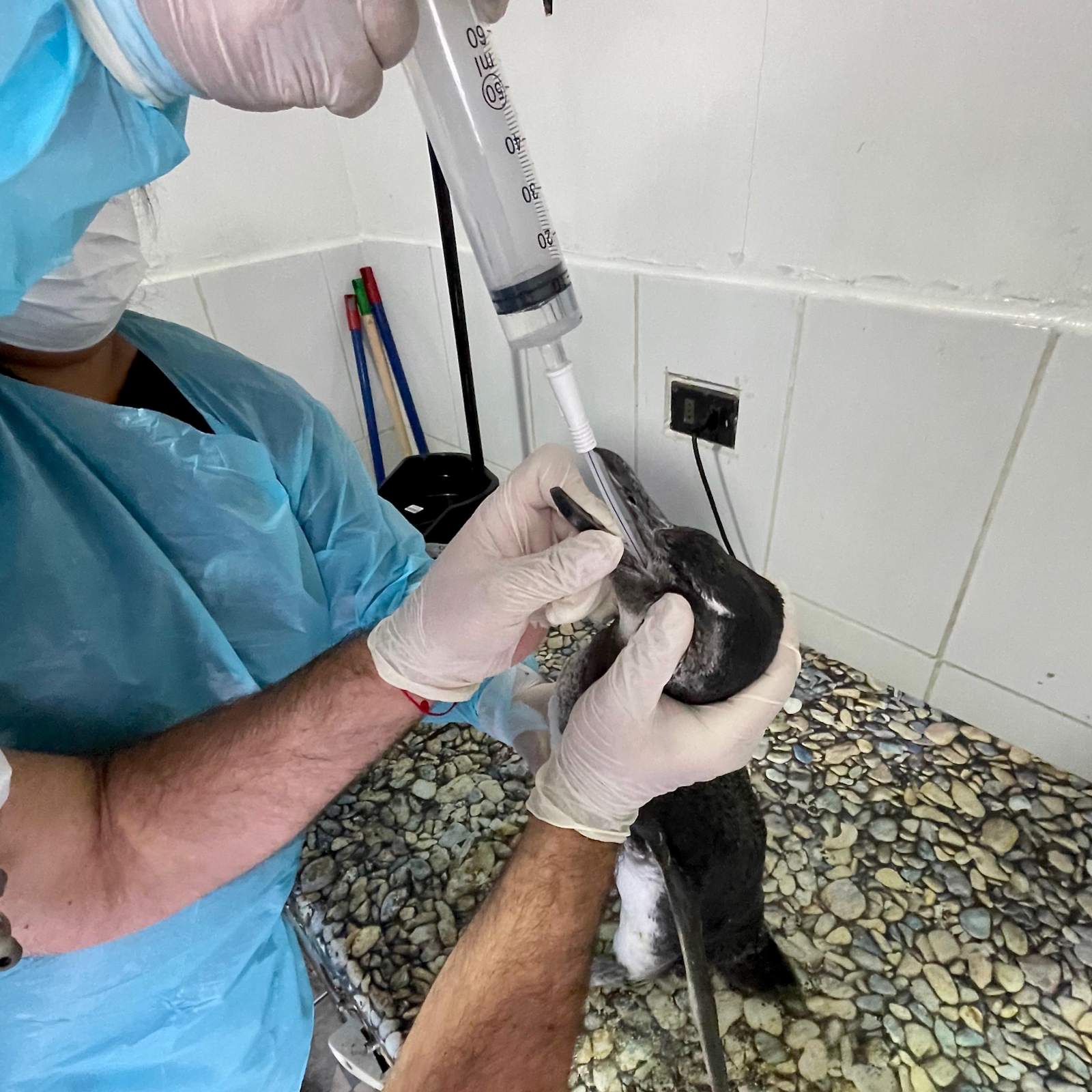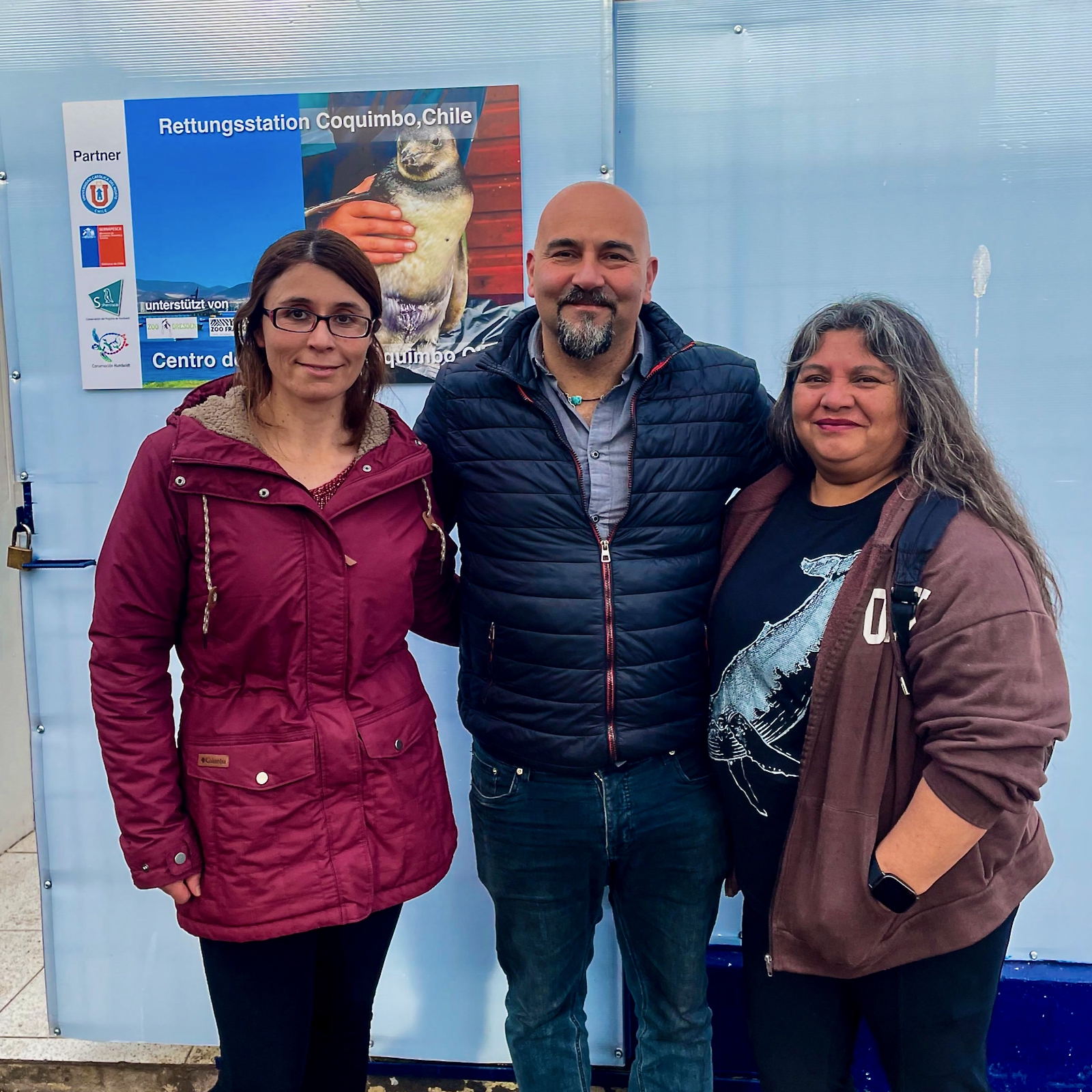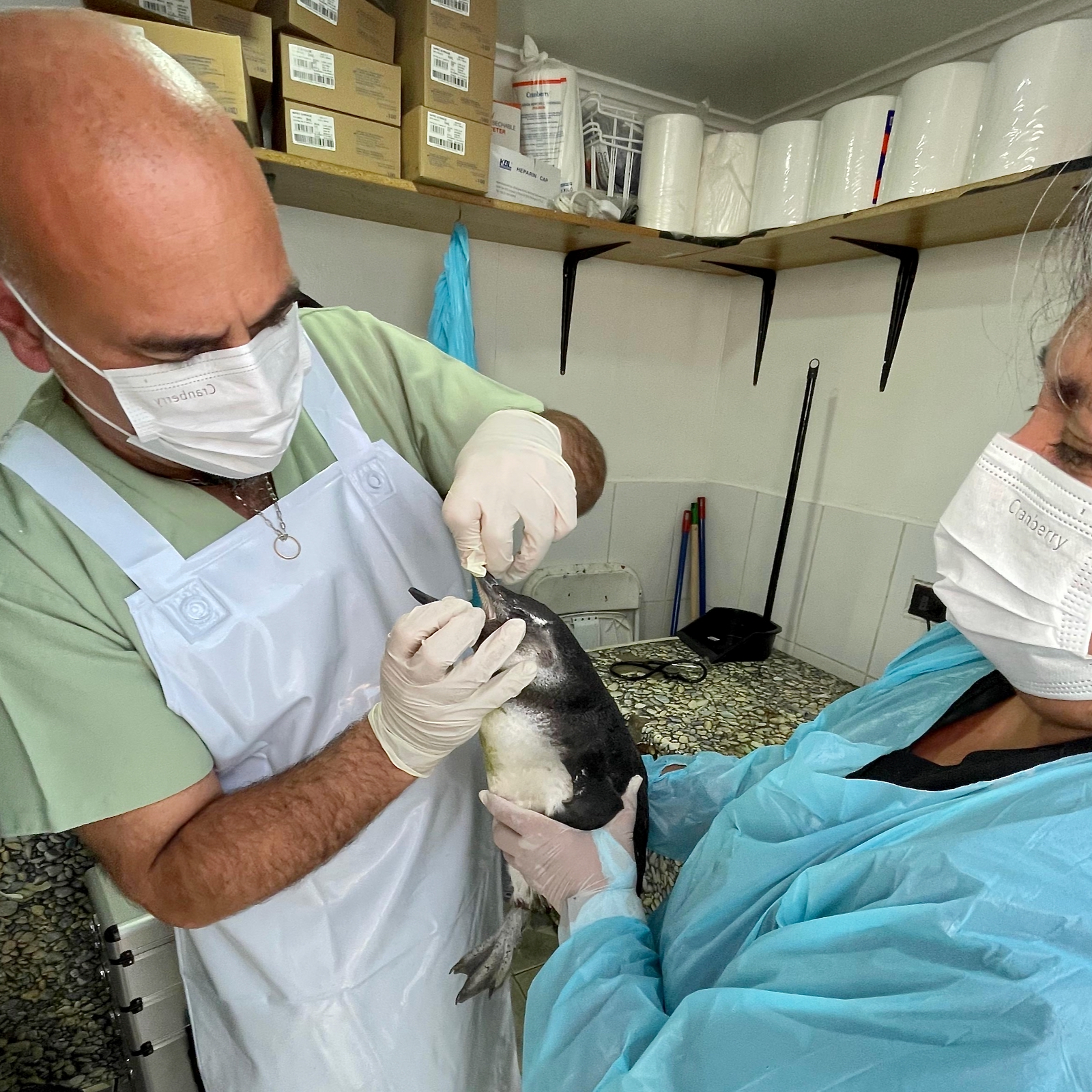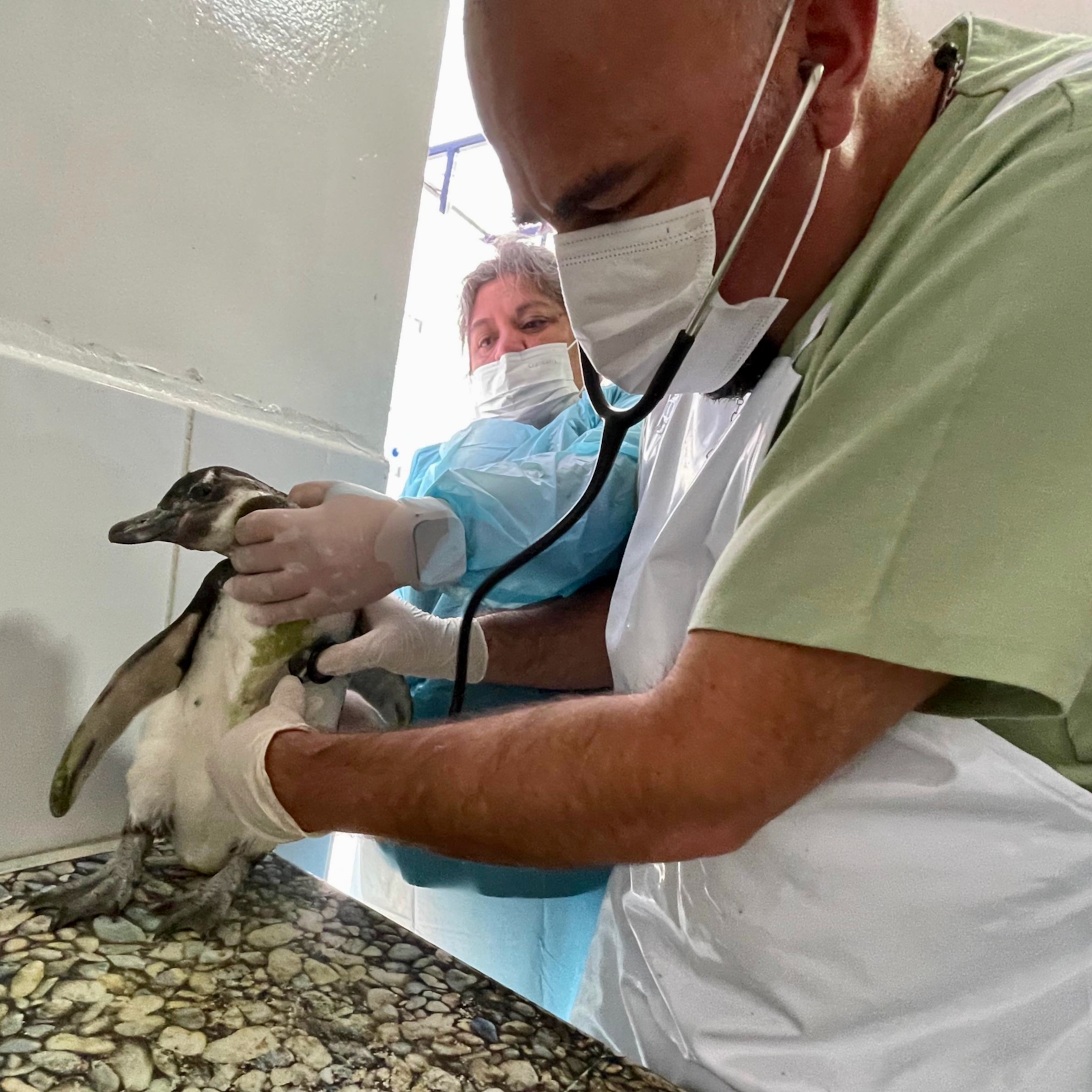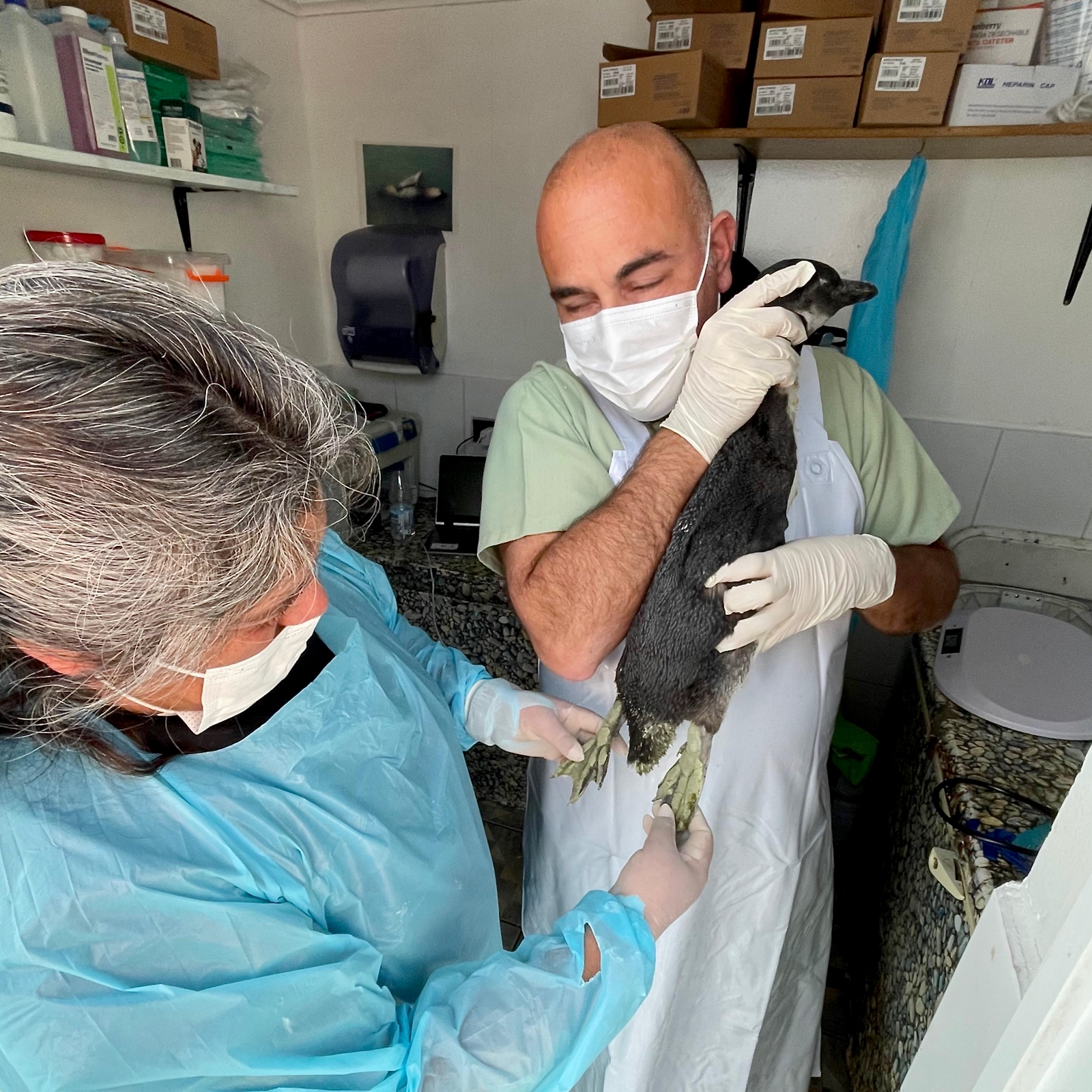Landau, 3rd of September 2025. At the beginning of August, the renovation of the marine animal rescue center in Coquimbo was completed. The care of injured marine animals is jointly provided by the NGO Conservación Humboldt, the Universidad Católica del Norte-UCN (1), Sernapesca (2), and Sphenisco. The project is supported by Frankfurt Zoo, Halle Mountain Zoo, and Dresden Zoo. (See article “Renovation ... completed” from 8th of August).
At the end of August, Tomás Pino Damke (President of the NGO Conservación Humboldt) wrote to Sphenisco: "...It is with great pleasure that I can inform you that we have already admitted the first patient to the center. It is a juvenile Magellanic penguin that was found on Tuesday, 26th of August, in Playa Blanca, Guanaqueros.
When he was admitted, he had deep wounds, probably caused by an attack from a sea lion. The injuries were surgically treated and stitched under anesthesia by the rescue center's veterinarian, Dr. Max Schultz.
The patient is currently recovering very satisfactorily. Since his arrival, he has gained 300 grams, which is a clear sign of his recovery. His plumage is only slightly damaged. We are confident that his feathers will fully regenerate after the next moult.
Daily care and nursing is provided by veterinary technician Yuvisa Torres and Dr. Loreto Nilsson, who are closely monitoring the Magellanic penguin's recovery. The penguin is currently active and seems to be enjoying its new surroundings (see photos and video). Thank you for your continued support.
On 1st of September, Nancy Duman (Sphenisco Chile) sends a WhatsApp message: “Hi, the rescue center already has three patients... all Magellanic penguins.”
The “Rescue and Care of Injured Marine Animals” project is progressing well. The renovation of the rescue station was completed faster than expected, and the first “patient” was admitted earlier than anticipated. The official inauguration of the station is planned for the end of September and will take place as part of the activities of the Universidad Católica del Norte. From then on, regular reports will be published on the work of the station, so that the rescue, care, and release of injured marine animals can also be used for environmental education. The focus will be on the biological diversity and productivity of the marine and aquatic world, climate change and its impact on biological diversity, the productivity of the oceans, and humans. The planned public relations work will be coordinated by a journalist from the NGO Conservación Humboldt.
W. K.
Notes
For better readability, the generic masculine form is used in this article. Unless otherwise indicated, the terms used in this article refer to all genders.
(1) Catholic University of the North
(2) Servicio Nacional de Pesca y Acuicultura de la Región de Coquimbo - National Service for Fisheries and Aquaculture of the Coquimbo Region
translated by Claudia Fawer



